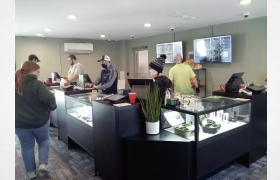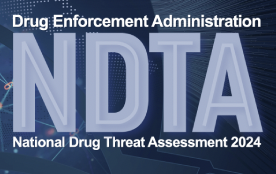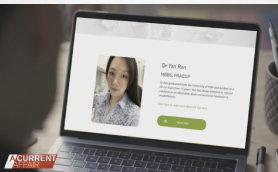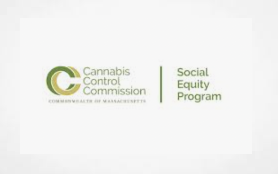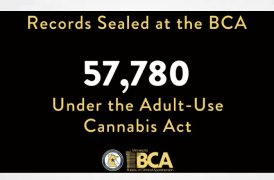Cover Image: Julie Gunnigle – Lawyer For Lindsay Ridgell
The Phoenix New Times reports
A group of organizations and individuals led by National Advocates for Pregnant Women and including comedian Amy Schumer have weighed in on a lawsuit in support of a Phoenix woman accused of child endangerment for her legal use of cannabis during a difficult portion of her pregnancy.
CV210069On July 1, the group filed an amicus brief with the Arizona Court of Appeals on behalf of “45 leading health organizations, doctors, ethicists, scientific and medical experts, and advocates,” in support of Lindsay Ridgell, who was found guilty of civil child neglect and placed on Arizona’s Child Abuse Central Registry because she used medical marijuana during her pregnancy to allay the symptoms of hyperemesis gravidarum, or HG, a condition that causes severe and life-threatening nausea, vomiting and dehydration.
The registry is a clearinghouse of reports related to child abuse and neglect, and the information may be used for purposes including determination qualifications for persons employed in positions providing service to children or vulnerable adults.
It is also a tool used to “determine the nature and scope of child abuse and neglect” and compare Arizona data to national trends, regardless of whether that neglect or abuse arose from the lawful or unlawful use of substances, a mental illness or incapacity, or simply an inability to properly care for a child. Inclusion in the registry can have a detrimental effect on the lives of those included, with a 25-year term that can follow a person for the majority of their adult lives.
The Ridgell case is an appeal of the Department of Child Safety’s decision to keep a former employee of the department on the registry.
“The law is abundantly clear,” said Scottsdale attorney Julie Gunnigle. “The AMMA [Arizona Medical Marijuana Act, passed in 2010] was designed to prevent these sorts of issues.”
Ridgell, a qualified medical marijuana patient for more than 10 years, found that she was pregnant in September 2018 and used cannabis to alleviate nausea and vomiting experienced as a result of her pregnancy.
The following month, she complained to her doctor about anxiety, nausea, lack of appetite, and difficulty sleeping. Her doctor prescribed medication for her condition, but she found that those did not relieve her symptoms, so she used cannabis to find relief.
There were medical issues with the baby from the beginning. He was transferred to Phoenix Children’s Hospital for further evaluation. Blood tests found that the boy had several prescription drugs in his system, all prescribed to Ridgell by her doctor, as well as a positive test for marijuana.
At the end of May 2019, DCS informed the new mother that she was being placed on the registry.
Eventually, Ridgell requested an appeal, stating, “I have a medical marijuana card. I did not use an illegal drug. It was prescribed by a doctor. I used medical marijuana due to being diagnosed with hyperemis (sic) gravidum—severe nausea and vomiting.”
On Feb. 6, 2020, an administrative law judge found that most of DCS’s evidence was “double hearsay,” and “was not the kind of evidence on which a reasonable person would rely.” The AJL directed DCS to amend its previous finding as “unsubstantiated” — thereby removing Ridgell from the registry — “because [Ridgell] used medical marijuana under her doctor’s care and according to their instructions during her pregnancy.”
But DCS refused to comply, stating that Ridgell had neglected the child by exposing him prenatally to cannabis that “was not the result of a medical treatment administered to the mother or the newborn infant by a health professional.”
A judicial review of the case in Maricopa County Superior Court upheld the DCS decision, which led to the current appeal to the Arizona Court of Appeals to determine “whether the administrative action was illegal, arbitrary, capricious, or involved an abuse of discretion.”
Should the appeal be successful, it would set a precedent and help clarify the law for future cannabis patients who may get pregnant.
At issue is whether the AMMA’s anti-discrimination provision applies to the DCS’s Central Registry. That law allows all adults, including those who are pregnant, to benefit from medical marijuana without penalty.
“My client was the only one who presented any science,” Gunnigle said. “She [submitted evidence] showing cannabis is a choice to treat HG during pregnancy, and that the risks to the fetus are not extreme. … Compared to the risks of the pharmaceuticals prescribed for HG that weren’t working, or the risk of having untreated HG, which is a one in three chance of a miscarriage? It’s minimal risk, and it’s a decision that she was completely entitled to make.”
The case is unusual in that Ridgell is a former DCS employee who is familiar with the inner workings of the department, according to Gunnigle. She believes provisions of the AMMA that protect patients from discrimination would preclude her inclusion in the state’s registry.
Gunnigle believes a lot of people on the registry are there for similar, unjust reasons, but they do not come forward due to the stigmatization of both cannabis use and being associated with the registry in the first place. She also believes it is a harmful situation because it might lead medical marijuana patients to forgo prenatal treatment out of fear of retribution by the state.
“The response isn’t, ‘Let me reevaluate my medical choices with my doctor.’ The response instead, for a lot of people, is ‘Let me forego prenatal care,’ because they don’t want this experience,” Gunnigle said. “That is a public health nightmare and it’s one more reason why policing these really private medical choices is terrible public policy.”
Gunnigle has her hands full these days as director of politics and civic engagement for Arizona NORML, given the organization’s push to help those affected by the war on drugs with expungement of their pot-related records. Since cannabis has become legal in the state of Arizona, she has joined in the fight to destigmatize the drug, a tall order in a state that has so many legislators and agencies working to undermine the laws.
Help battle the Department of Child Safety
Sonia Martinez has been handling this case so far, but sadly she cannot continue. Luckily Julie Gunnigle former candidate for Maricopa County District Attorney has stepped up to push for the betterment of the AMMA and has taken on this case for hopefully a win with the Court of Appeals.
